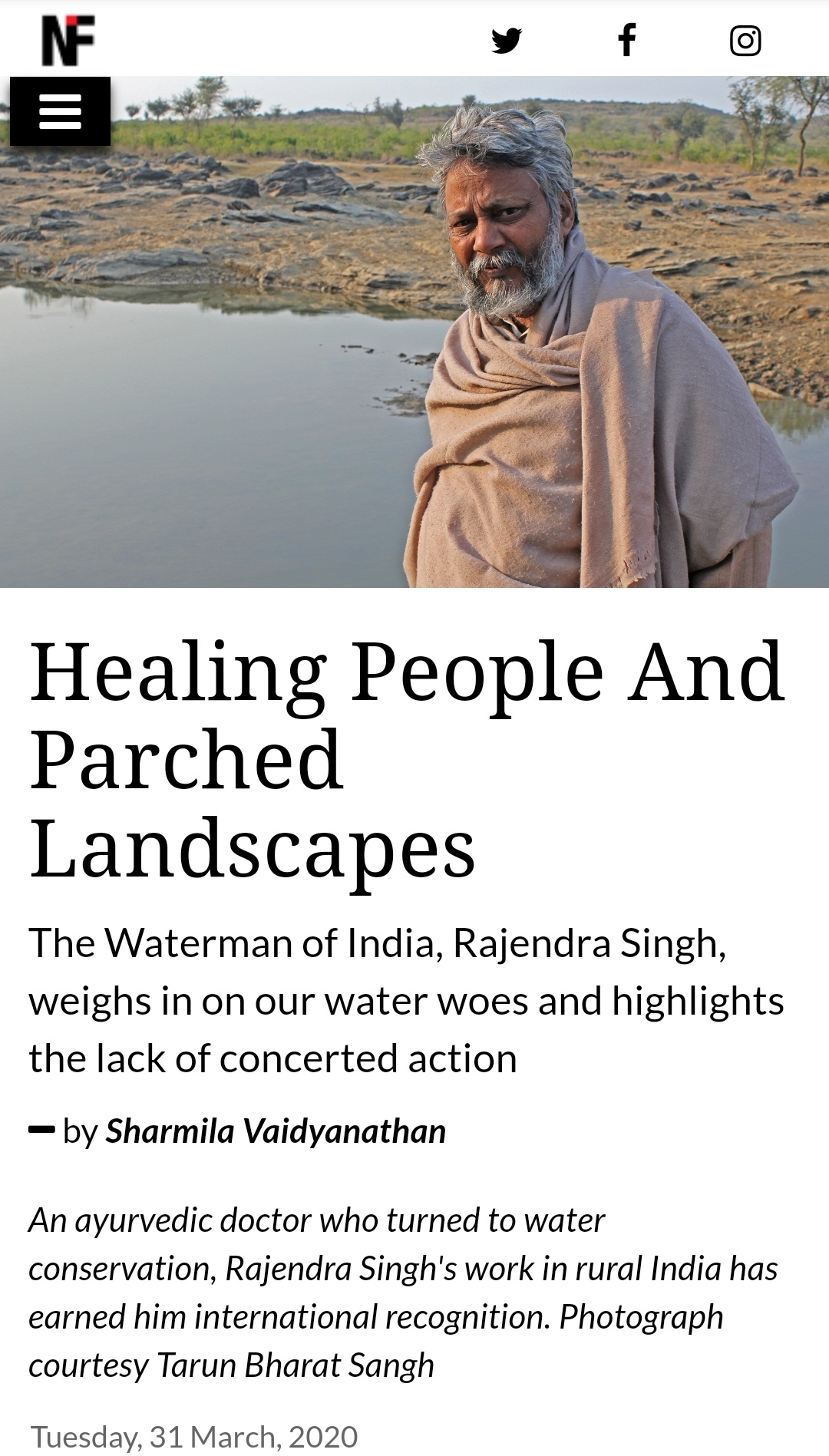The Waterman of India, Rajendra Singh, weighs in on our water woes and highlights the lack of concerted action
As published in Nature inFocus on 31, March 2020.
In 2008, The Guardian published a list of ’50 people who could save the planet.’ A responsibility of massive proportions nonetheless, this list has names of eminent scientists, physicists, entrepreneurs and our very own water warrior — Rajendra Singh.
Water Conservationist, Rain Man of Rajasthan, Waterman of India, Jal Parush — Rajendra Singh is known by many monikers, but none manage to capture the enormity of his work that spans four decades. His NGO, Tarun Bharat Sangh, based out of Alwar, Rajasthan has been working on bringing water security to more than 1200 villages across 15 districts within the state. By employing the traditional johad method (percolation ponds that collect rainwater), he has managed to convert barren landscapes to agricultural havens. For his work, he was awarded the Ramon Magsaysay Award in 2001, the prestigious Stockholm Water Prize in 2015, and the Ahimsa Award by the Institute of Jainology, United Kingdom in 2016, gaining him international recognition.
Under his tutelage, Tarun Bharat Sangh has been instrumental in forming various entities to promote and create awareness about water conservation and the protection of water bodies. The Rashtriya Jal Biradari or National Water Community was formed in April 2001 at the National Water Convention held in Rajasthan. This committee brings together farmers, researchers, NGOs and other interested individuals, across states, to work on pertinent water-related issues. The Jal Jan Jodo Abhiyan is a similar initiative that focuses on mass mobilisation through walks, discussions and rallies, for the protection of our water bodies. Most importantly, Singh has promoted community-based water management. Through Gram Panchayats (village councils) and Pani Panchayats (water councils), he ensures people are equal participants in finding solutions for their water problems. He also worked to end illegal mining in the Aravallis, Rajasthan, and the rejuvenation of the Arvari River in Rajasthan. He was one of the members of the National Ganga River Basin Authority and is a founding member of the UK-based NGO Flow Partnership.
In pure Hindi, Rajendra Singh talks about why we need more work on the ground, and how we should be measuring our water conservation efforts. Here’s a translated version of the conversation.
Read the complete interview here.
